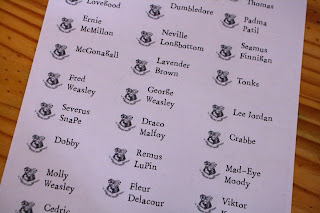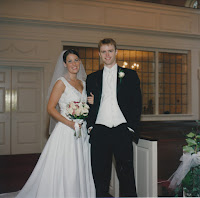20,000 people standing together in a great crowd, singing without the help of guitar or drum, just voices. People from countries all over the world. From every state in the union. People who spoke English and Mandarin and Spanish and Igbo. People who were joined together, in all their beautiful differences, by their belief in a good and beautiful God.
I once stood in the midst of such a gathering.
I once stood in the midst of such a gathering.
Putting that moment into words is nearly impossible. That many voices joined as one. To be able to hear the solitary voice next to me while at the same time hearing the words "Hallelujah, salvation and glory" sung in glorious harmony by thousands of others, a song that literally shook the rafters of that colosseum, well, there are really no words.
It was a taste, just a taste, of heaven.
And it was a taste that I know has driven much of who I have become.
Revelation 7: 9-11 says this:
After this I looked, and there before me was a great multitude that no one could count, from every nation, tribe, people and language, standing before the throne and before the Lamb. They were wearing white robes and were holding palm branches in their hands. 10 And they cried out in a loud voice:
“Salvation belongs to our God,
who sits on the throne,
and to the Lamb.”
who sits on the throne,
and to the Lamb.”
That scripture, that perfect picture of humans, fully reconciled, fully themselves, worshiping together in harmony. Not in one assimilated "heavenly" language. Not as ethereal whitish beings floating around. But as God's glorious creation, without hatred, beautiful in their outward differences, free from division, worshiping as one.
That picture is beauty my friends.
And that scriptural picture is one I hold tightly side by side with my shining earth-bound moment of tasting it. I let it drive what I see and what I hope for. I let it color my conversations and anchor my faith. I learned at some point to pray the Lord's Prayer often and fervently. To pray it as more than a discipline, but as a declaration. The calling down of God's presence here on earth. Saying over and over again "on earth as it is in heaven" and believing that even though we know the world will always be broken, that God is active and loving and calling us into the work of hope and action that believes we can see the beauty of heaven in the everyday.
For the last three months, I have been privileged to co-lead a group that is trying, in our tiny little corner of Virginia, to be a part of inviting God's will for reconciliation and diversity into our church.
For three months, we have studied the scriptures and talked about justice and oppression and hope. For three months we have talked about slavery and the Native American Genocide, about power, about Black Lives Matters and police brutality, about unfair housing practices and redlining and whitewashed school curricula and segregation and white supremacy. We have talked about awareness and self-education and lament and repentance and forgiveness. We have shared our own experiences of race in America and in the church. There has been anger and defensiveness and tears and frustration and guilt. And sometimes, yes, even joy and laughter.
It has NOT been easy.
Why?
Because it is not supposed to be easy.
in his book "Coming Together: The Bible's Message in an Age of Diversity" Curtiss DeYoung says this says this:
"Systems of injustice in society and in the church exact a heavy cost on those outside the centers of power and effectively block reconciliation" and "declaring that we are equal without repairing the wrongs of the past is cheap reconciliation."
The true work of reconciliation is deep, hard, soul-wrenching work.
The true work of reconciliation is deep, hard, soul-wrenching work.
We could have sat around and declared our equality in God's sight and charged forward together singing Kum-Ba-Yah. But that is what churches have done over and over again and change never happens. It's cheap reconciliation that is not founded on repentance and hope. It's cheap reconciliation that seeks action without personal and communal repentance.
We wanted better for our church. For our tiny little piece of heaven on earth. Our emotions in this process don't scare God. The Be the Bridge curriculum we have used says that the "ultimate aim of reconciliation is the restoration of broken relationships, whether between individuals or entire communities. True reconciliation requires commitment and sacrifice from both sides."
As anyone knows, the work of restoring relationships is some of the hardest work we are ever called to do. It can be painful. It can require us to work through anger and bitterness. It usually invites us to lay ourselves down for one another. That is messy, gospel work.
So here we are:
 |
| Men and women (with a few precious faces missing) who participated |
Black and white. Men and women. American-born and internationals. Northerners and southerners. Republicans and Democrats and Independents.
Falling at the throne of God together to ask for deep grace and forgiveness. Admitting the ways we have not known. The ways we have failed to act. The ways we have chosen comfort over risk. And clinging to the hope and beauty of the cross together as we do it.
We want more. More for our church. Our neighborhoods. Our schools. Our nation.
And so we will continue to meet. We'll talk about reparations and restoration. We'll dig into the continual and cyclical process of awareness, acknowledgment, lament, repentance and forgiveness.
And we will do it together, messily and unashamedly and in ways that will bring healing and positive changes to the world around us.
Because that, my friends, is what the church does.
Because that, my friends, is what the church does.



























